Can Hamsters Eat Pomegranate?
Yes, hamsters can eat pomegranates, but only in small quantities. High sugar levels in pomegranates can lead to health issues in hamsters, such as a greater chance of obesity and diabetes. Thus, it is essential to moderate the amount of pomegranate you give your hamsters.
Adorable little pets like hamsters need particular nutritional care to be healthy. To ensure the health and well-being of your pet hamster, you must know what food hamsters may or may not eat. Pomegranate is one such treat that hamster owners frequently think about. This article will give you all the information you need to know about feeding your hamsters pomegranate.
Pomegranate as a Healthy Treat for Hamsters
Like with any other food, moderation is essential. Pomegranate, in moderation, might be an excellent addition to your hamster’s menu. Although pomegranates are highly beneficial for humans, they have the opposite impact on hamsters.
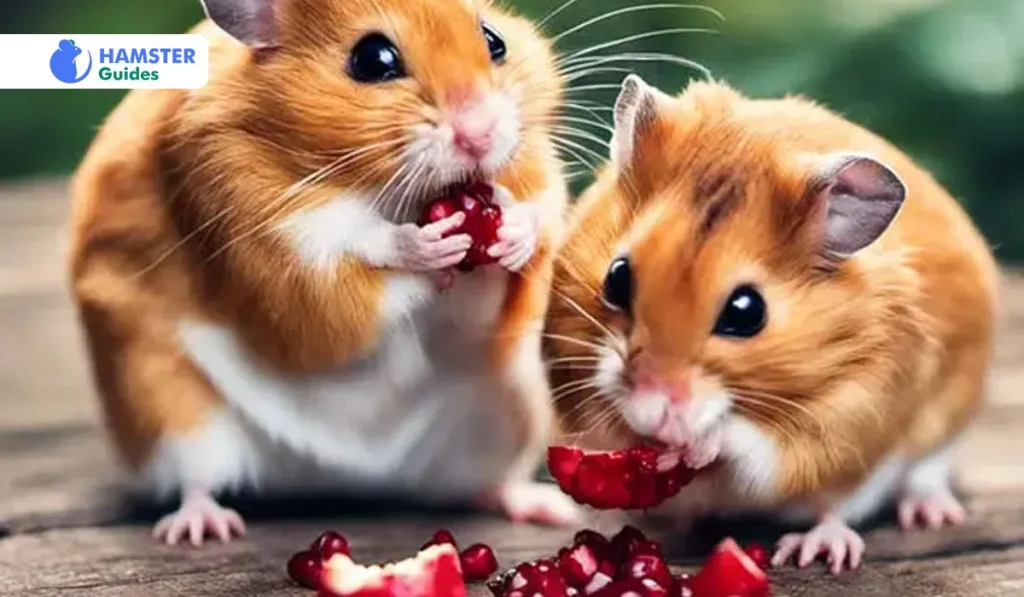
Its juicy, edible seeds provide vitamins, antioxidants, and even fibre. But the drawback is its high level of sugar that can seriously harm a hamster’s sensitive digestive system.
Related Resource: Can hamsters have Honey?
The Diversified Health Benefits of Pomegranate
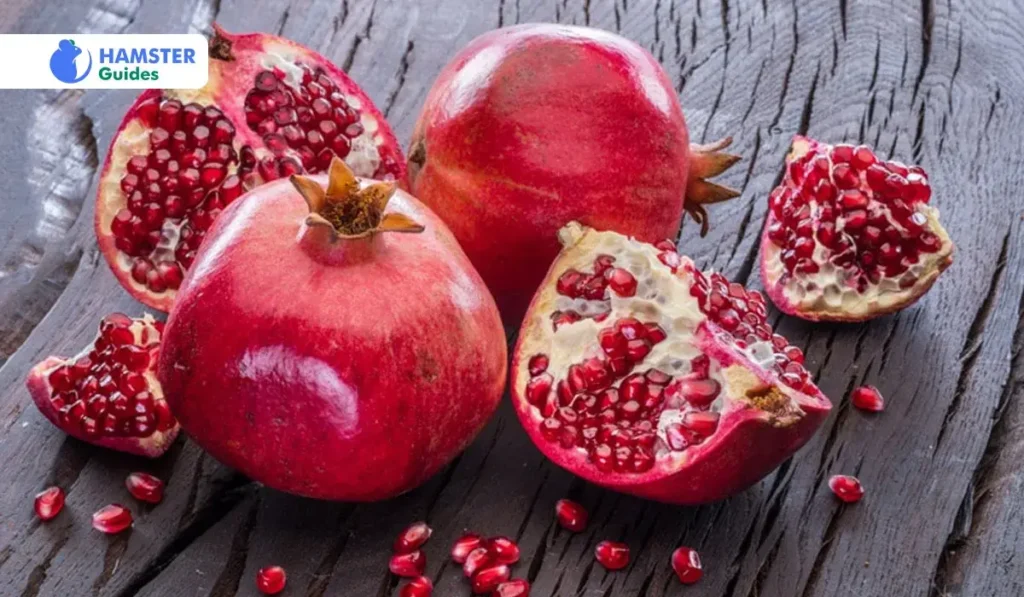
It’s crucial to analyze the nutritional value of every new food before adding it to your Hamster diet. Although pomegranate can be a tasty treat for hamsters, it contains natural sugars. It’s essential to be careful about its sugar content, particularly for hamsters at risk of diabetes or obesity.
Other Resource: Can Hamsters Eat Tangerines?
Nutritional Values for 100 grams of Pomegranate Arils
| Nutrient | Amount |
| Calories | 83 kcal |
| Water | 79 g |
| Protein | 1.7 g |
| Carbohydrates | 18.7 g (of which sugars: 9.2 g) |
| Fiber | 4.0 g |
| Fat | 1.2 g |
Vitamins and Minerals
| Vitamin C | 10.2 mg (17% of the Daily Value) |
| Vitamin K | 16.4 µg (20% of the Daily Value) |
| Folate | 38 µg (10% of the Daily Value) |
| Potassium | 236 mg (5% of the Daily Value) |
Hamster Digestive System
Unlike humans, hamsters have a distinct digestive system. They need to eat a lot of fibre, often found in hamster pellets, which is the main source of their food. Giving your hamster a high-sugar treat like pomegranate might cause digestive issues such as:
Diabetes and Obesity
Eating diets rich in sugar can lead to diabetes, which is a common health problem among hamsters. Just like any other pet, hamsters can be prone to health problems including diabetes and obesity.
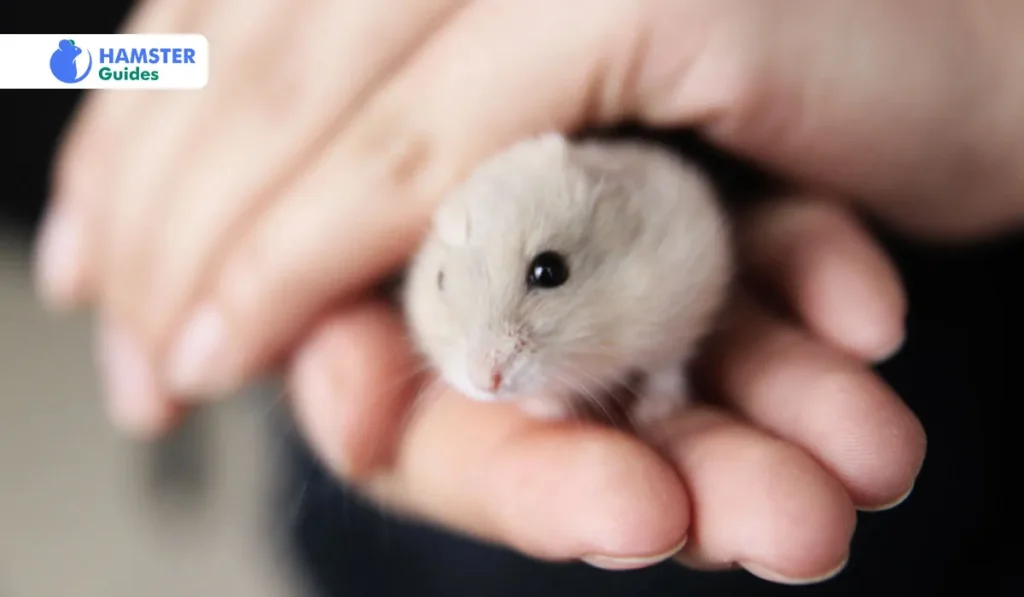
To avoid these conditions, it is necessary to keep an eye on their sugar consumption, particularly from treats like pomegranate. Signs of diabetes in hamsters are:
Digestive Concerns
Although hamsters have an excellent digestive system, eating too many pomegranates might cause stomach problems, including vomiting and diarrhoea. Pomegranate and diarrhoea in hamsters are very closely related because of their hard seeds and outpeel. It is vital to gradually Introduce new food to your hamster and see how they react.
Potential Risks and Allergies in Hamsters
| Aspect | Information |
| Digestive issues | Pomegranates should be added gradually to prevent vomiting or diarrhoea. |
| Allergic Reactions | Uncommon, but keep an eye out for any symptoms like itching, swelling, or behaviour changes. Call a vet if required. |
Veterinary Care for Hamsters
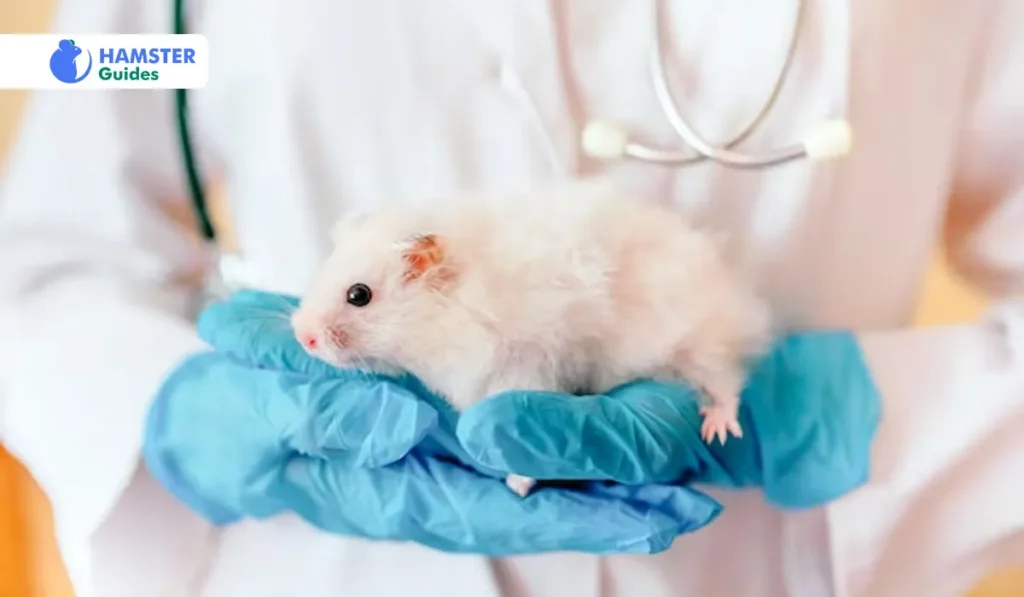
Consult veterinarian care as soon as possible If you observe any Side effects of pomegranate in hamsters. A vet can advise you on the best course of action, and all required changes to the Hamster diet or about their treatments.
Extra Advice: Hamsters can survive on a balanced diet that consists of pelted food, fresh water, and the odd safe treat. Although Pomegranate can be tempting, it can be considered an Occasional treatment option, not an essential diet.
Beyond the Pomegranate Seeds
Keep in mind, that pomegranates give more than just seeds. But handle it with caution. They have tannins in them, which may be harmful to hamsters. The Peeling of the pomegranate can cause a choking hazard.
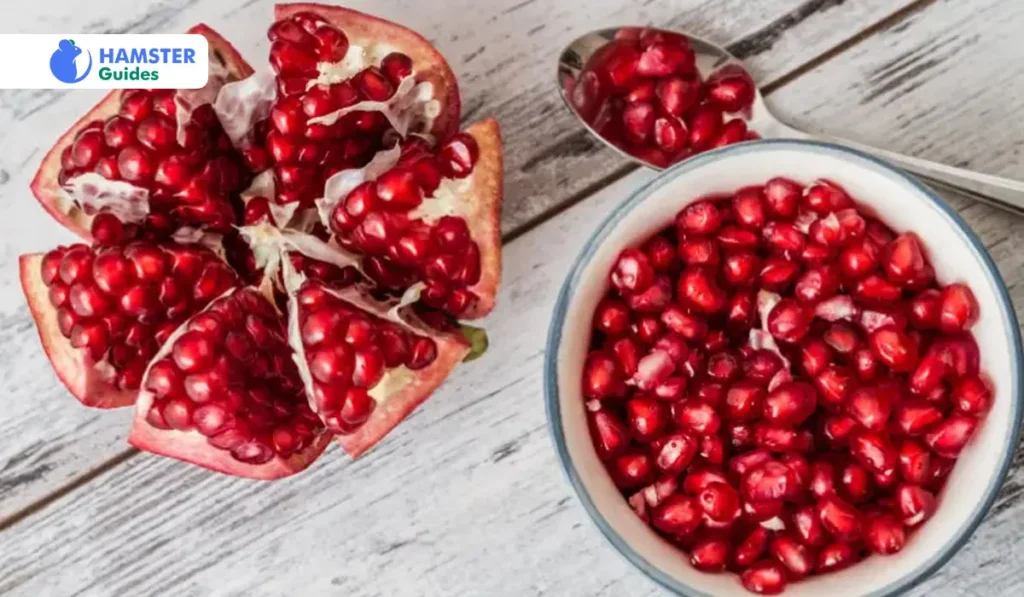
It’s also difficult to digest and low in nutritional value. Sugar content is higher in juice than in the seeds. So make sure that your hamster must drink water as a primary beverage.
Safe Foods for Hamsters
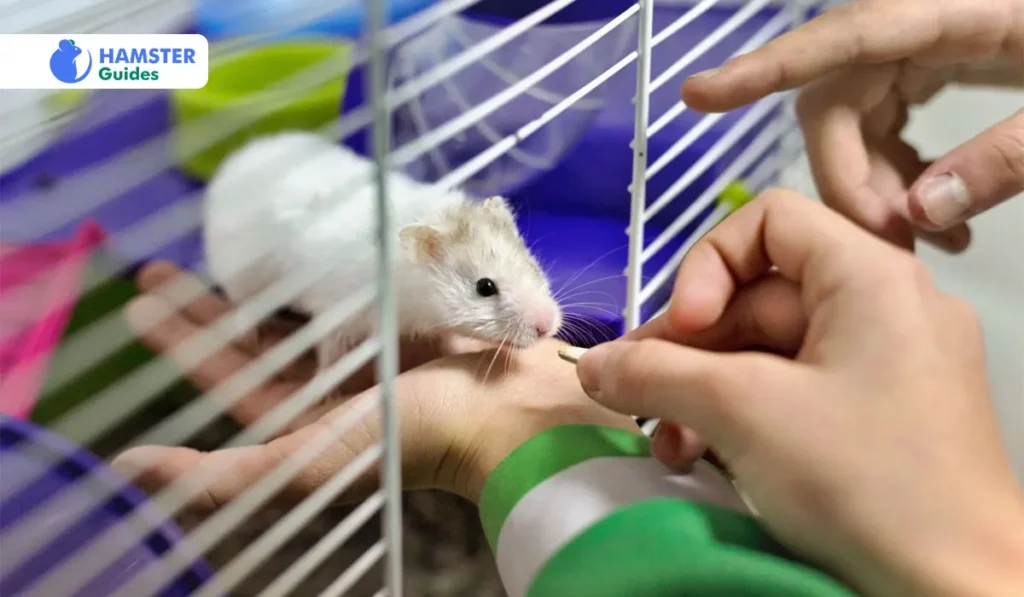
When you are going to feed your hamster, safety must be your priority. Your hamster should only be given safe meals to feed. Along with pomegranate, the following are the suitable foods you can offer your hamsters:
Extra Advice: Look for hamster-safe foods online or go to your local pet store for expert advice. Consider that a happy hamster is one that is in good health!
Hamster Pellet Alternatives Abound
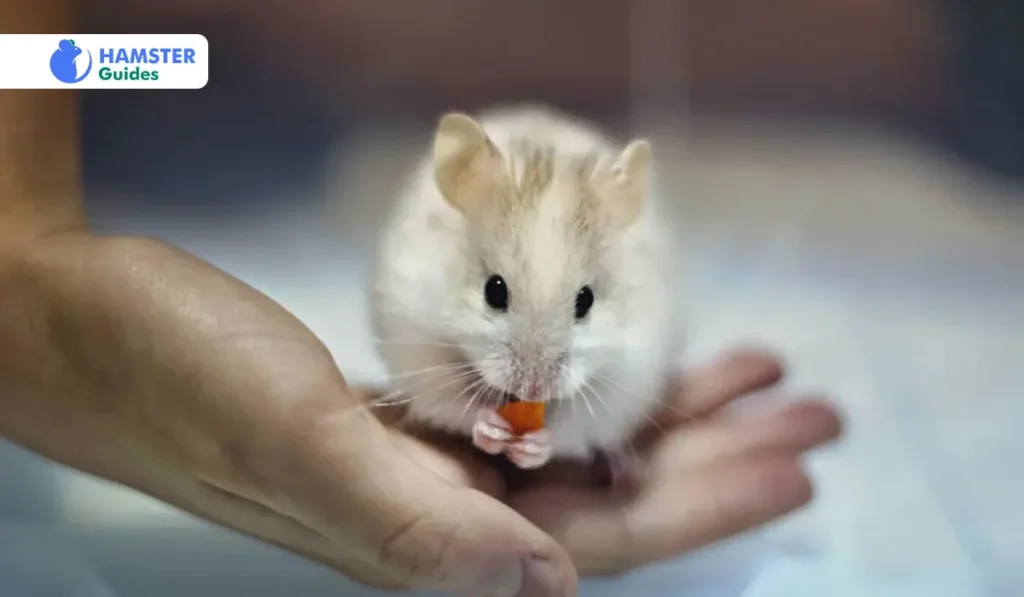
Be relaxed! Many more safe and healthy treats for hamsters are available:
Read more: Can Hamsters Eat Cauliflower?
Know the Toxic Elements in Pomegranate
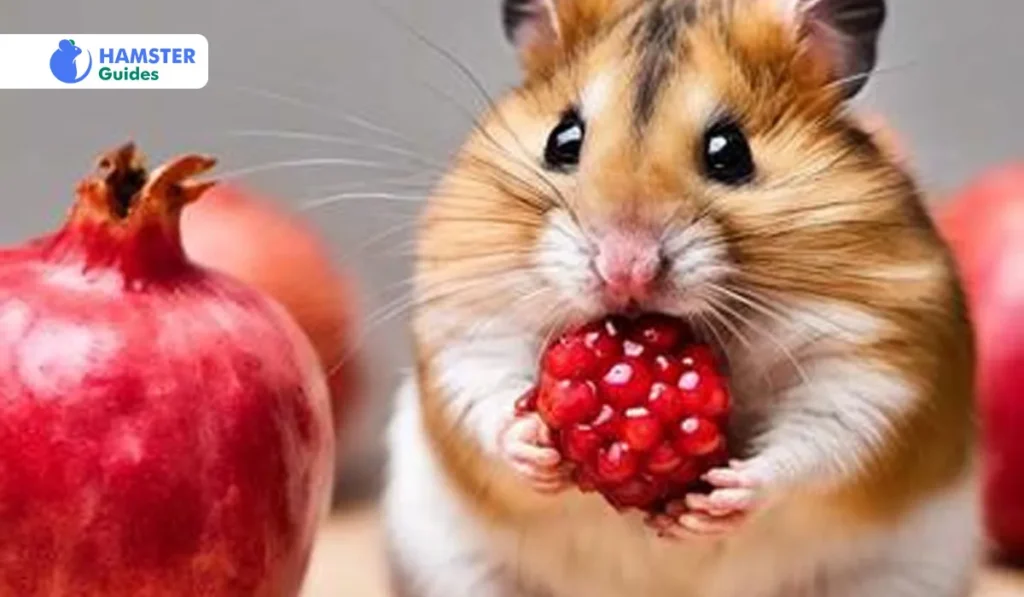
Toxic substances found in pomegranate seeds and peels might be dangerous for your hamster. Pomegranate peel can cause irritating gums while eating, and indigestion of the seeds may lead to blockage in the intestines. Always remove the seeds and peel completely before giving it to your hamster.
The Final Words
When eaten in moderation, pomegranates can be a nutritious treat for your hamster. Beware of giving your hamster a lot of pomegranate, which can result in health issues like intestinal blockage, obesity, and diabetes.
You have to be a responsible pet owner, closely monitor your hamster’s diet, and watch for any signs of illness. If you observe any health symptoms in your hamster, always contact your vet.
In conclusion, you can consider pomegranates a fun treat for your hamster, but it is important to limit its consumption to avoid health problems. It’s good to give them a high-fiber and low-sugar diet and Occasional treat options like pomegranate. Always consult a veterinarian for any queries about your hamster’s health.
Note: This article is for informational purposes only and should not be considered a substitute for professional veterinary advice. Always consult your veterinarian before introducing new food to your hamster’s diet.

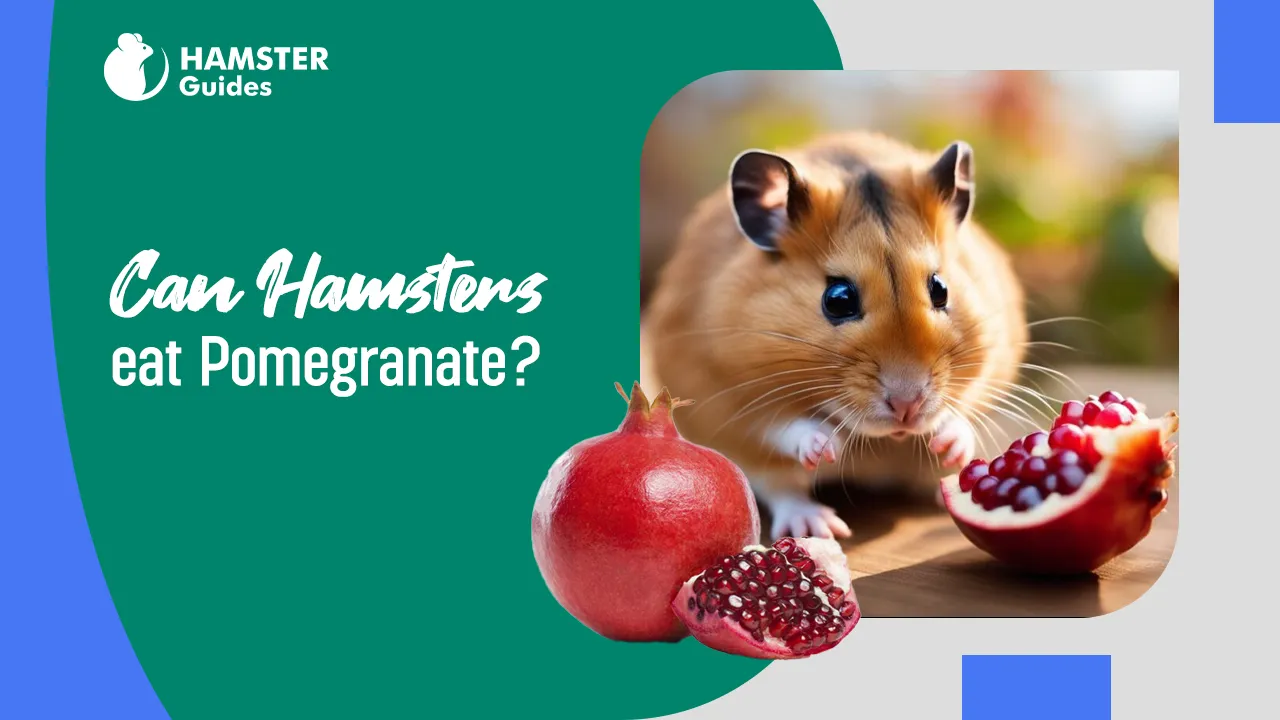







Leave a Reply